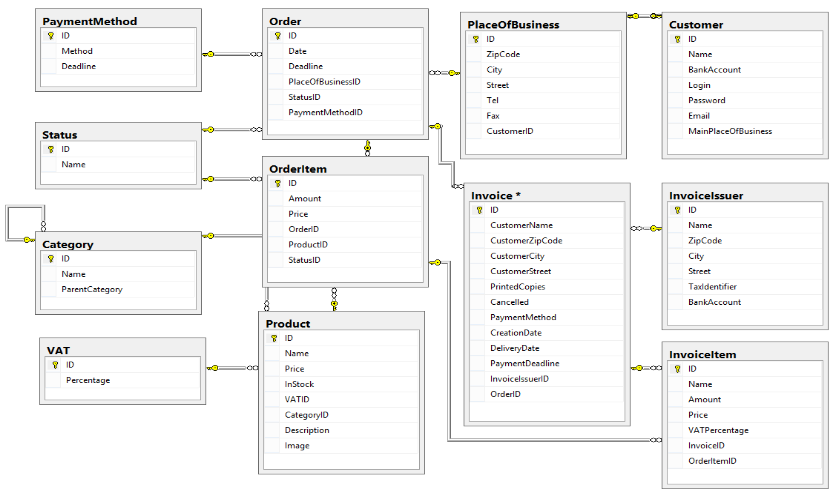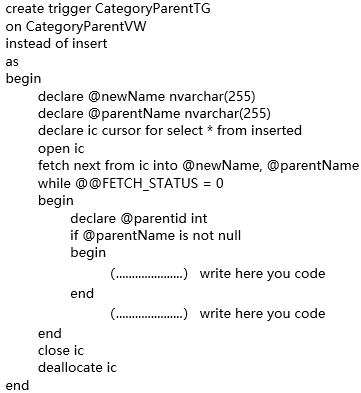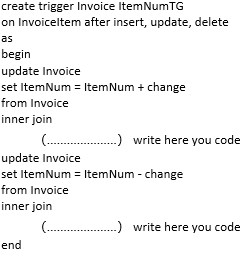Question
Use MICROSOFT SQL SERVER language to fill the block like (...) Here is the diagram 1)Create a new view on table Category. There should be
Use MICROSOFT SQL SERVER language to fill the block like (...)
Here is the diagram

1)Create a new view on table Category. There should be two columns in the view: the name of the category and the name of the parent category (or null if it does not exist)
create view CategoryParentVW
as
select..................... write here you code
left outer join ..................... write here you code
2)Create a triggerthat allows insertinga new category through the view. If the parent category is null, throw an exception and exit. 
3)Test the trigger. The solution contains the commands for the test and the results as well.
Try it without a parent category
insert into..................... write here you code
... and with parent category
insert into ..................... write here you code
.... finally with an erroneous parent
insert into ..................... write here you code
4)Modify the table Invoice, add a new column to store the sum of all items of the invoice. (e.g. two balls and one pen are 3 items)
alter table Invoice (Invoice)
..................... write here you code
5)Create a T-SQL block to fill up the new column based on the data stored.
update Invoice
set ..................... write here you code
6)Create a trigger that can update the ItemNum field automatically.

7)Test the trigger. The command, the expected and the real results should be documented.
update InvoiceItem
set ..................... write here you code
Payment Method Order ID 9 ID Date Method Deadline PlaceOfBusiness ID Zip Code City Street Deadline PlaceOfBusinessID StatusID Payment Methodid Customer Y ID Name BankAccount Login Password Email MainPlaceOfBusiness Fax Customer Status 8 ID Name Invoicelssuer 9 ID Orderltem ID Amount Price Order D ProductiD StatusID Category 9 ID Invoice* Y ID CustomerName CustomerZipCode Customer City Customer Street PrintedCopies Cancelled Payment Method CreationDate DeliveryDate Payment Deadline InvoicelssuerlD Order Name ZipCode City Street Taxidentifier BankAccount Name ParentCategory Product VAT Y ID Name Invoiceltem Price Percentage Name Amount InStock VATID CategoryID Description Image Price VATPercentage InvoicelD OrderitemID create trigger CategoryParentTG on CategoryParentVW instead of insert as begin declare @newName nvarchar(255) declare @parentName nvarchar(255) declare ic cursor for select * from inserted open ic fetch next from ic into @newName, @parentName while @@FETCH_STATUS = 0 begin declare parentid int if @parentName is not null begin (..... .....) write here you code end (.............) write here you code end close ic deallocate ic end create trigger Invoice ItemNumTG on Invoiceltem after insert, update, delete as begin update Invoice set itemNum = ItemNum + change from Invoice inner join (.....................) write here you code update Invoice set itemNum = ItemNum - change from Invoice inner join (.....................) write here you code endStep by Step Solution
There are 3 Steps involved in it
Step: 1

Get Instant Access to Expert-Tailored Solutions
See step-by-step solutions with expert insights and AI powered tools for academic success
Step: 2

Step: 3

Ace Your Homework with AI
Get the answers you need in no time with our AI-driven, step-by-step assistance
Get Started


